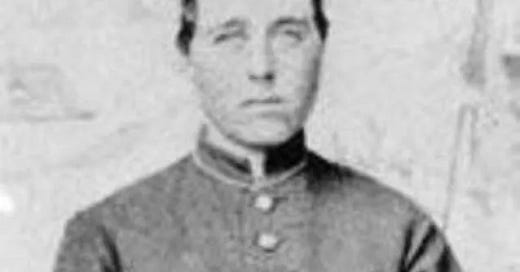Under the sun in ancient Rome, you are parading, carrying a massive black rock with your fellow priests to Cybelle, considered the Great Mother of the Gods. You are a Galli, a castrated priest who dresses exclusively as a woman with the accompanying adornments. You occupy a gender grey area and a major cult in Roman society. You may not have the words for it but many many years later with an entirely different language, you may have been considered transgender.
Or maybe you find yourself in the middle of a battlefield, bullets flying overhead, fighting to end the institution of slavery in the United States. Your name, Albert Cashier, is one that you chose for yourself, and like at least 250 soldiers on the Union side, you fought as a man even if you were assigned female at birth.
There’s an idea among anti-trans circles that trans people are a new phenomenon, and that we exist as some social contagion.
The word transgender has mixed origins with the Oxford English Dictionary marking its first use in 1974, and it didn’t reach widespread use until the 1990s. In the years leading up to its adoption people navigating the gender binary may have used a whole host of different terms like transexual or crossdresser, but no matter the name we used, like the Galli, we’ve always been here.
Speaking as a trans person, I always find a disparate beauty when hearing about underrepresented trans stories. It feels, in a way, like modern folklore. I’ll share stories of these people with other trans people like I shared cheat codes and video game embellishments when I was a kid.
Every time I hear about a mythological deity with multiple genders ala Loki, or a community that practiced non-standard gender practices like the Native American tribes that believed in two-spirit, I feel seen.
Expressing queerness in the wrong place can leave you lonely and without community, instilling loneliness and hopelessness.
These small stories show that no matter the circumstance, we still find ways to persist, that trans is beauty, and beauty is humanity.



